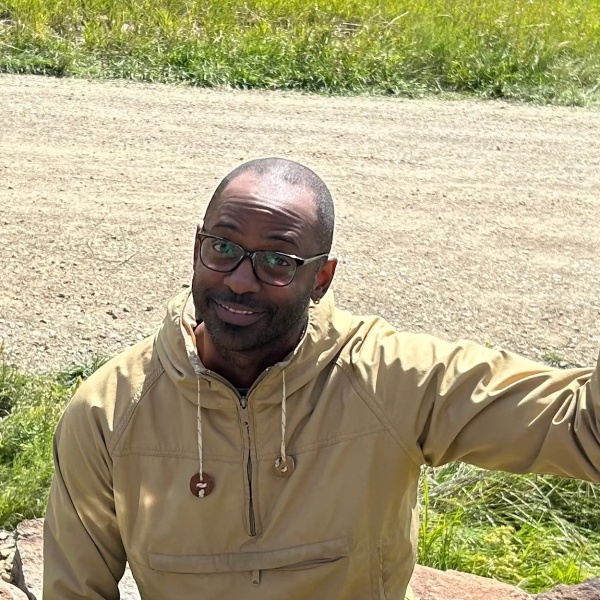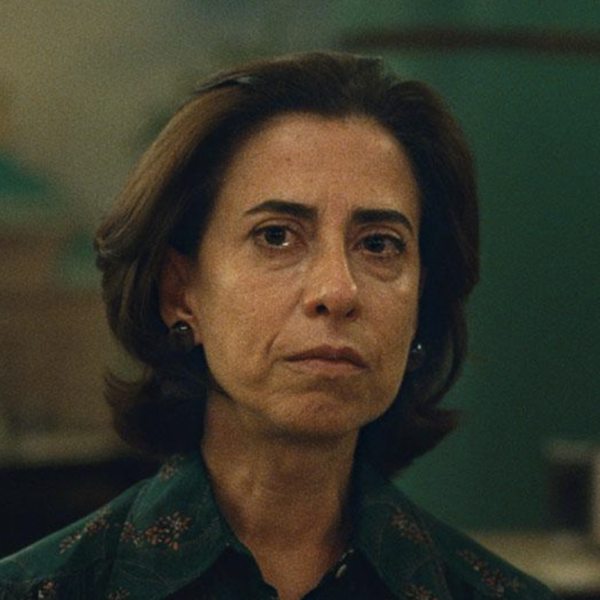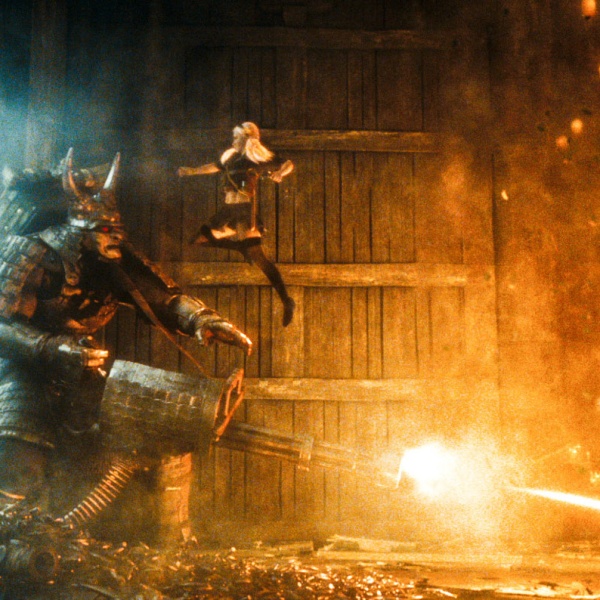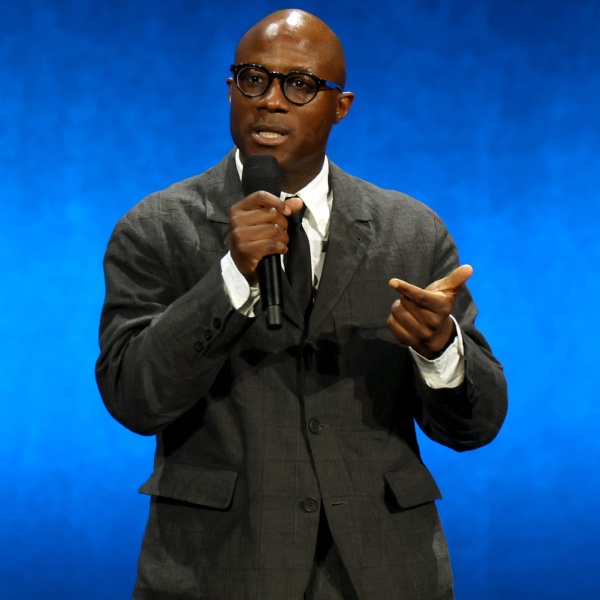It’s generally useful, when starting a film, to know the basic premise or general idea of what’s going to happen. “Desert Road” is an exception that proves the rule. Not only is it best that you don’t know what happens in Shannon Triplett’s debut feature, but it’s most impactful if you don’t even know the genre of what you’re about to experience. The film, a chamber piece of sorts set on a scant few yards of a Los Angeles desert highway, hides its plot turns well from the audience and is at its most fun when you’re being caught off guard. The downside to its constant surprises, however, is that the answers it eventually offers are less satisfying than the beguiling mystery it puzzles you with.
The film starts simply enough, with the sight of a beat-up silver car traveling along a lonely stretch of an arid desert. The driver is a young woman (Kristine Froseth), whose backstory and reason for her solitary trip is doled out via phone calls with her supportive mom (Rachel Dratch supplies the voice on the other end of the line). An aspiring photographer who has come up short on one too many opportunities, our hero has decided to pack up her Los Angeles apartment and head back to her family in Iowa — she’s “stuck in a loop,” as she puts it during one conversation.
Stopping for gas in an old, solitary gas station, the woman gets put off by the skittish and odd attendant (Max Mattern) and makes a beeline to get back on the 190 highway as soon as possible. Her nerves — plus a mysterious text from an unknown number she receives while driving — get the better of her, and she crashes into a small but unmoving boulder not far from the station. As she waits impatiently for a tow driver to come to her rescue, the film sketches out the rest of the landmarks in the tiny stretch of highway via simple but striking wide shots from cinematographer Nico Navia that emphasize the barren emptiness of the few yards the woman is stranded on. Besides the gas station, there’s an old, sprawling factory she wanders past, and some jagged rock formations to her very right. But as she takes in the views, the woman also experiences concerning events — her camera goes missing, her credit card abruptly declines, and the gas station attendant only acts weirder with every repeat visit she’s forced to make.
Triplett’s script is steady and sparse, ramping up the mystery at a naturalistic pace as we learn what Froseth’s lead learns. And it’s filled with believable misdirects, including the nature of the danger she’s clearly about to experience. From the way the film hammers in the attendant’s shiftiness, it becomes easy to expect that he’ll serve as an antagonist, perhaps some sort of stalker preying upon the protagonist. Instead, the woman clocks his actual secret less than twenty minutes in, and stumbles upon an even bigger problem than just a flat tire. As she heads past the factory in a huff, she winds up walking back to the gas station. Walking the other way past the gas station, she makes a full circle on the straight highway — she’s stuck in a loop, only a literal one this time.
From there, the film gets dives into the surreal, as the woman fights to try and make it out of this barren world. The sci-fi twist lands perfectly given Triplett’s careful and discrete screenplay, which sets up its twists without making them obvious beforehand. Her muscular direction ratchets up the tension smoothly as the woman grows more and more paranoid through her encounters with increasingly hostile strangers, particularly a memorably witchy Frances Fisher as a homeless squatter who seems to know something about what’s going on. In its best moments, “Desert Road” mixes its oblique and withholding storytelling and old-fashioned thriller filmmaking to often spellbinding effect.
But eventually, the spell gets broken, when the film starts to tip its hand into explaining more about what’s going on. The explanation it does come to is disappointingly predictable for what had been an unpredictable film, even if it gives Froseth more emotionally wrought material to work with. As it barrels from its central revelation into the final act, the film’s screenplay gets far more leaden and eager to underline and neatly tie up its plot threads rather than letting the audience do the work of figuring out the logic themselves, complete with literal sharpie diagrams to explain the sci-fi mathematics at the heart of the time loop. For a film that thrived on withholding, the extra business pops far too much of the exquisite atmosphere.
Things get even shakier when the movie barrels into its final act, which banks on your emotional investment in a relationship that (by its very nature) isn’t particularly fleshed out. The tone takes a sudden shift towards lightness and optimism, and the story begins to unconvincingly frame the entire loop experience as a “Groundhog Day”-esque coming-of-age, character-building exercise for Froseth’s lead. The ending, in particular, feels a bit too pat and easy given the film’s ambition, ending the loop with a shrug rather than a bang.
To the extent that the ending works at all, it’s because of Froseth. A consistently skilled performer who has been a welcome presence in films like “The Assistant,” “Sharp Stick,” and “How to Blow Up a Pipeline” as well as TV series like “Looking for Alaska,” Froseth has never quite had a breakout role to her resume. The relatively modest “Desert Road” probably won’t change that, but it’s one of the meatier film parts she’s had, and it gives her space to build out a committed, vulnerable performance. In playing the lead, she emphasizes her youthful face and gives her voice a sugary sweetness that makes her character feel particularly unformed, still figuring out her place in the world. As the surreality and tension ramp up, she grows harder and more confident, convincingly developing the grit and spine that her character arc needs to land. She makes “Desert Road” worth watching, even when the film itself sometimes falters.
Grade: B-
“Desert Road” premiered at SXSW 2024. It is currently seeking U.S. distribution.





